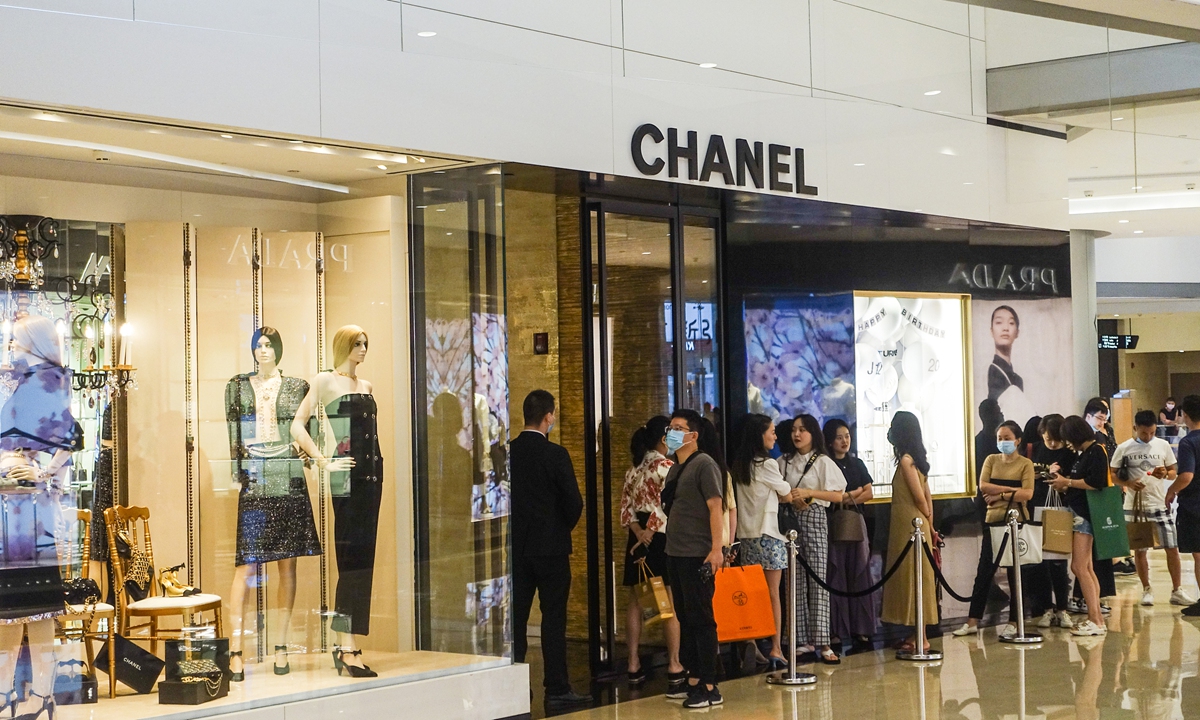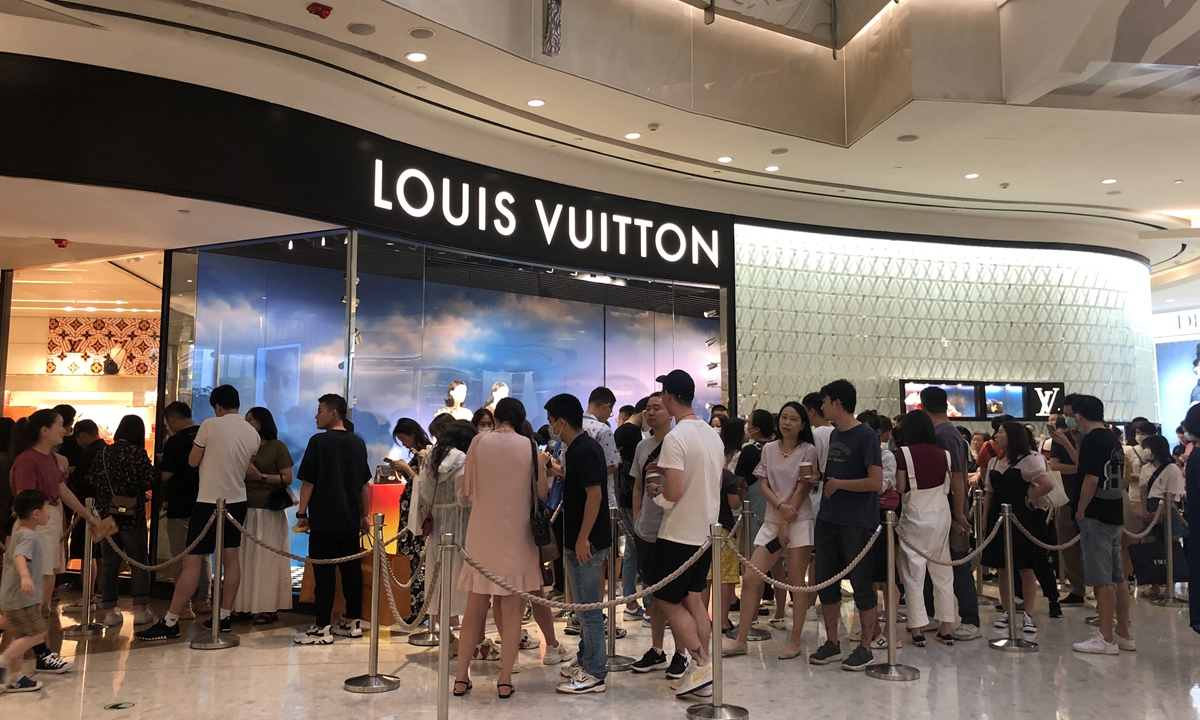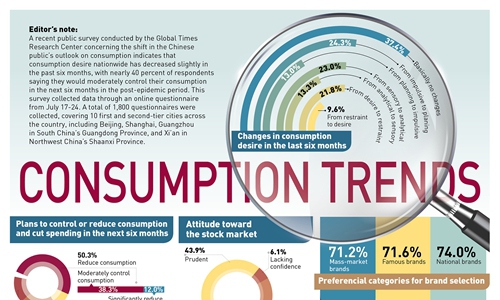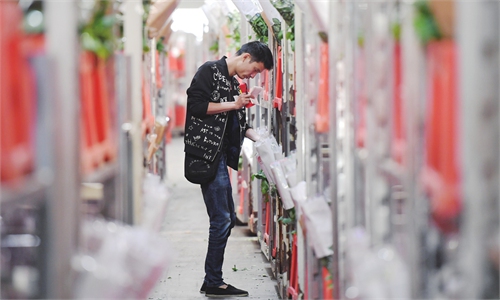SOURCE / MARKETS
Chinese customers queueing up for luxury brands over imminent price hikes

Photo:VCG
Customers in several first-tier cities in China are queueing up in front of luxury brands stores over the weekend, over concerns over imminent price hikes and prolonged international travel restrictions that hold tourists back from their usual oversea shopping.
In the International Finance Center (IFC) in Pudong, Shanghai, long queues are seen on Saturday in almost every luxury stores including Louis Vuitton, Chanel and Christian Dior. Customers will need to wait for more than an hour to get into the stores on average, Global Times observed.
Similar long queues are also seen over the weekend in other high-end malls over the nation, such as Beijing SKP mall and the Mixc mall in Shenzhen.
Most customers swamp to the stores say they are hoping to get their favorite luxury products before prices jump even more, and few come out empty handed. A customer wearing a Chanel skirt and carrying a LV handbag, waiting in the long queue, told the Global Times on Saturday that "I heard the price of LV bags are supposed to be raised by 20 percent very soon! As I can't go abroad, I decide to get my favorite ones back home."
A sales guide said he heard the rumor of price-hike but he has not received an official notice from the group yet.
"There have been big crowds of customers since the Spring Festival," a staff member from the Chanel store told the Global Times. According to another staff, queues are especially long over the weekend and on weekday nights.

In the International Finance Center (IFC) in Pudong, Shanghai, long queues are seen on Saturday in almost every luxury store including Louis Vuitton. Photo: Cao Siqi/GT
Due to sharp decline in global sales revenue, luxury brands have been increasing their prices to hedge against further loss. Louis Vuitton has adjusted up its prices twice in the first half of this year. In May it raised prices on some of its popular products by over 10 percent, and Dior increased its prices by around 13 percent in January.
Some customers are also rushing to the stores because they cannot go on their usual oversea trips for shopping during COVID-19, Yang Qingshan, a professor at the University of International Business and Economics in Beijing, told Global Times.
"Every year holiday season is an important growth season for luxury brands in Europe, where groups of Chinese tourists spend a lot of money in local luxury stores," Yang said, "Buying luxury products from local stores can be cheaper, especially in countries such as Italy and France, Chinese tourists have become an important part of their annual sales."
A customer queueing for the Shanghai Louis Vuitton store told the Global Times that instead of travelling abroad, they are considering going to South China's Hainan Province this year, where a recently established free trade zone might offer them some discounts for luxury brands.
Luxury brands are increasingly turning to China amid the COVID-19 pandemic. Many have been facing a tough market outlook since the start of the coronavirus crisis, as a result of the closure of many stores and manufacturing sites.
According to statistics compiled by Bain & Company, a consulting firm, the luxury goods market may have contracted by around 25 percent in the first quarter of 2020.
Several prominent international luxury brands groups have cited China in their half year reports as one of the few markets with positive growth despite the industry headwind. In late July, LVMH Group reported a strong recovery in the second quarter in China, saying it has witnessed "exceptional resilience" in consumers in China to the crisis.
Kering, another luxury brand group and the parent group of Gucci, Alexander McQueen and Yves Saint Laurent, said China is also the only market in the Asia-Pacific region where sales rose, with a 6.4 percent positive growth in the first half of 2020. Notably, some brands including Gucci have been seeing a robust growth since mid-April.



